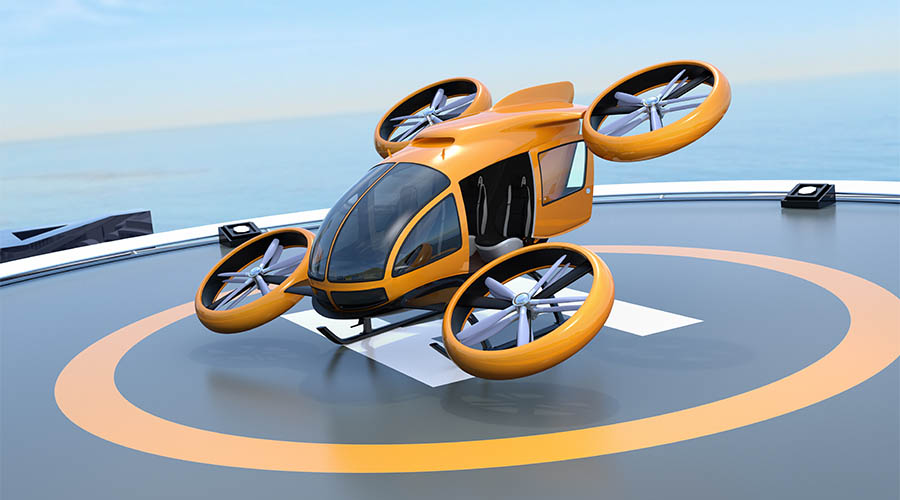Integration of novel aviation technologies could cut costs by up to 48% in the way we move people, goods and services - new report suggests

A report, commissioned by UKRI and the Future Flight Challenge, analysed six use-cases on their potential to boost the UK economy and deliver wider societal benefits.
Their findings suggest that the integration of new aviation technologies – drones or air taxis – will deliver valuable benefits by reducing costs, journey times and industrial accidents.
The report selected six use-cases, representing key applications of new aviation innovation in the UK:
- Drones for powerline inspection
- Drones for cargo (mail) delivery
- Drones for last mile delivery of prescribed medicines
- Sub-regional air taxi passenger transport from York to Preston
- Rural air taxi passenger transport from village to village or village to town
- Urban air taxi passenger transport in an urban area
Their analysis showed:
- An overall net cost saving of between 20-48% across the use-cases
- Safer working conditions in the powerline inspection sector
- A reduction of journey times by up to 37% with the introduction of rural air taxis
These findings highlight the potential market opportunity that could be realised through the integration of drone and air mobility technologies, making a significant contribution to realising the potential impact of ongoing activities within the Future Flight Challenge.
Future Flight is a £125m Industrial Strategy Challenge Fund programme aiming to revolutionise the way we fly people, goods and services. In line with this report, the challenge seeks to position the UK as a global leader in aviation technology, boosting the UK economy and delivering wider societal benefits.
Read the media release and full report online.

